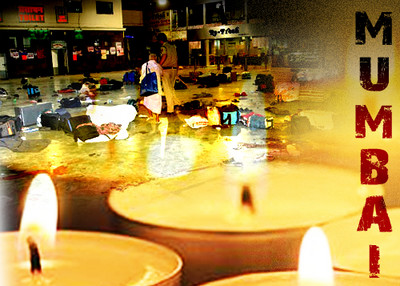 As the world prepares to mark the two-year anniversary of the deadly 2008 Mumbai attacks, one of the biggest threats facing counter-terrorism officials is the possibility of another Mumbai-style attack in a major Western city.
As the world prepares to mark the two-year anniversary of the deadly 2008 Mumbai attacks, one of the biggest threats facing counter-terrorism officials is the possibility of another Mumbai-style attack in a major Western city.
In recent weeks it has been revealed that al-Qaida and its affiliates in Yemen and Northern Africa are actively planning Mumbai-style fedayeen attacks on European and Western cities. Seeking to prevent the murder and mayhem that accompanied the terrorist attacks, international law enforcement officials have responded in varied ways.
India, understandably, is on high alert. Arrests related to terrorist plots have been made in Denmark and Belgium. German security officials have canceled leave and beefed up their presence at transportation hubs. British officials are urging vigilance and say the threat of attack is the highest since the 2007 London bombings.
Ten Lashkar-e Tayyiba militants took the city of Mumbai hostage on Nov. 26, 2008, killing 183 people and injuring hundreds more during a nearly three-day siege. They attacked several high profile targets throughout the city, including two luxury hotels—the Taj Mahal Palace and the Oberoi-Trident—along with the main railway terminal, a Jewish cultural center, a café frequented by westerners, a movie theater, and two hospitals.
These civilian and tourist areas were largely unsecured in 2008, not just in India but around the world. Commenting on the threat posed to these "soft targets" at the time, Brahma Chellaney, a top strategic expert at a leading think tank in New Delhi told the Investigative Project on Terrorism, "what happened in Mumbai in 2008 is a novel method that is likely to be replicated in the West before long." Indeed, earlier this year, Indonesia foiled a Mumbai-style plot by al-Qaida in Aceh.
Now, two years later, these locations remain unsecured throughout much of the Western world. Unsurprisingly, al-Qaida has noticed.
The new English-language Internet publication by al Qaida in the Arabian Peninsula, Inspire, makes numerous references to the organization's interest in smaller attacks aimed at "soft targets." The first issue introduced its readers to the concept of "open source jihad," noting the magazine "allows Muslims to train at home instead of risking a dangerous travel abroad." The second issue built upon the concept, moving beyond home-made explosives to what is called "the ultimate mowing machine." "The 'terrorizing' element is great. With blades welded to the truck and slashing out at the enemies of Allah at high speed, you can imagine the scene after such an operation," Inspire explains while directing potential jihadists to crowded restaurants and streets. Most recently, the third issue of Inspire, which focused on the recent cargo bomb plot, stressed the need for smaller attacks aimed at civilians.
Last month, intelligence officials revealed that Islamic terrorists are targeting European capitals. The news prompted the United States to take the unprecedented step of issuing a travel alert for Europe. "U.S. citizens are reminded of the potential for terrorists to attack public transportation systems and other tourist infrastructure," the State Department explained. "Current information suggests that al Qaida and affiliated organizations continue to plan terrorist attacks."
Possible targets reportedly included the Eiffel Tower and Notre Dame Cathedral in Paris, Berlin's Brandenburg Gate and Central Station, as well as London's Buckingham palace.
In response, governments throughout Europe and the United States have enhanced security in response to the evolving threat. Although the most common defense has been increased police presence and other visible security measures, some countries have limited access to major tourist attractions and government centers.
Germany has increased security following warnings that attackers would arrive from India or the Gulf to target German shoppers at Christmas markets. On November 22, the Reichstag was closed to tourists until further notice. The move came after Germany's Der Spiegel magazine reported the discovery of plans by militants to break into the parliament in central Berlin and take hostages.
London implemented similar measures when it banned foreigners from visiting Big Ben due to security concerns. Citing the cost and time associated with conducting background checks on visitors, the Keeper of The Great Clock announced the change in policy. Foreigners continue to be able to tour the British Parliament.
The Eiffel Tower in Paris has been the target of repeated threats by al-Qaida and other terrorist organizations, prompting the government to evacuate the popular tourist landmark (see here and here). Even in light of the most recent threats, France has yet to take the steps that Germany and London have taken to shut down popular tourist attractions.
Similar to France, the United States has beefed up security while keeping public places open to tourists. In October of this year, the New York Police Department conducted a drill to simulate and respond to a Mumbai-style attack. The tactical exercised included simulated explosions and active shooters in multiple locations, the type of conditions possible if attackers attempted a Mumbai-style attack.


